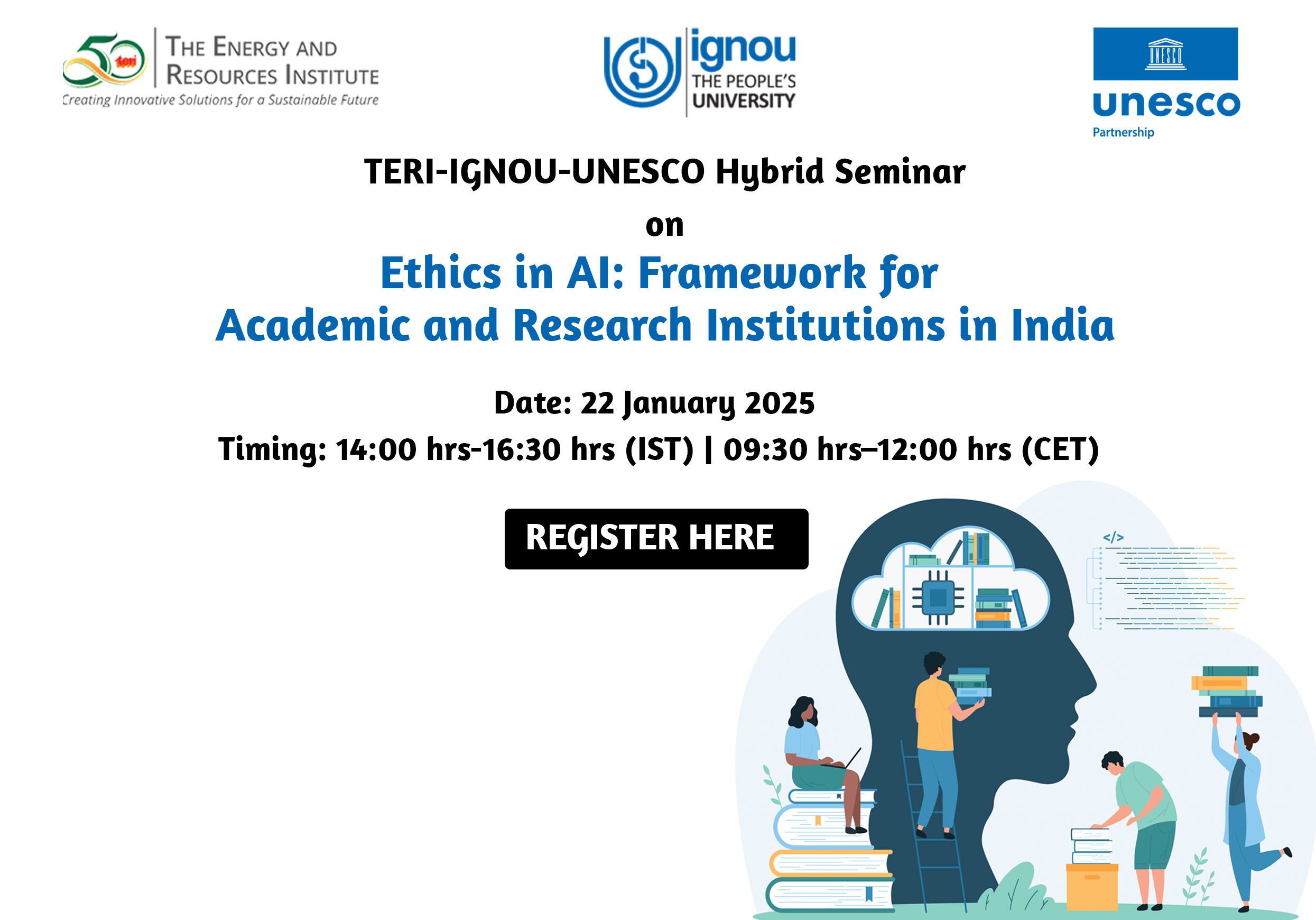Hybrid Seminar on Ethics in AI: Framework for Academic and Research Institutions in India
The integration of Artificial Intelligence (AI) into academia is revolutionizing education, research, and administrative practices on a global scale. As AI reshapes the landscape of higher education and scholarly inquiry, it unlocks unprecedented opportunities for innovation. However, this rapid advancement also brings significant ethical challenges. Issues such as algorithmic bias, data misuse, lack of transparency, and threats to academic integrity have raised serious concerns about the responsible use of AI within educational institutions. Addressing these challenges requires the development of a robust ethical framework, particularly in academia, where the implications of such decisions influence both current and future generations of learners and researchers.
Globally, nations are making strides in advancing their AI ecosystems through comprehensive strategies that prioritize research, education, and ethical policymaking. Countries such as China, the United States, and the United Kingdom are leveraging AI to drive innovation and excellence in education. In India, initiatives led by NITI Aayog and partnerships between academic institutions and private stakeholders underscore the growing role of AI in shaping the future of academia. While the potential for AI to enhance education and research is immense, it is equally crucial to ensure that these advancements are grounded in ethical principles, fostering equity, transparency, and accountability.
In this context, this hybrid seminar—the second in the joint webinar series organized by TERI, IGNOU, and UNESCO—offers a dedicated platform for academic and research scholars to examine these challenges and opportunities. The event aims to equip academia with the tools and insights needed to address ethical concerns while fostering responsible innovation in AI.
Objectives of the Seminar:
- To raise awareness of ethical challenges associated with AI in academic research and education.
- To share case studies and real-world experiences from students, educators, and researchers.
- To discuss actionable solutions and frameworks for the responsible development and use of AI in academia.
- To foster interdisciplinary collaboration and exchange of ideas among academic scholars and practitioners.
- To create a set of actionable recommendations and guidelines for institutions to implement ethical AI practices.
Target Audience:
Academicians, Researchers, Publishers, Industry professionals, Policy Makers etc.

